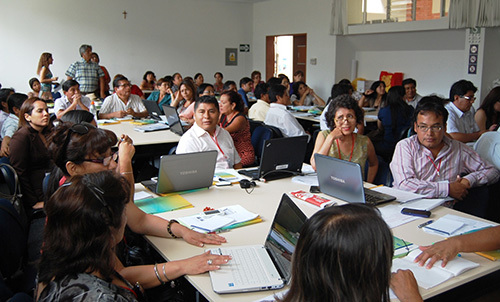
Jari Lavonen, Professor of Science Education and head of department at the University of Helsinki, Finnország, will be speaking about teacher education in Finland with a particular focus on teacher effectiveness and professionalism at the Oppi Festival in Helsinki this week (Április 11 és 12).
Finland has a reputation for excellence in education in terms of both high quality and equal opportunities for all. Ezért, organizing a global learning festival in Helsinki designed for teachers and educators to celebrate best practices in education, and bringing together 90 of the world’s leading experts from 18 különböző országok, makes a lot of sense, jobbra?
That’s the hope of the organizers. The goal is that this festival will be the first in a series of international festivals in different countries for many years to come. The festival will offer workshops, presentations and discussions on the most recent themes in education, and feature top international thought leaders, including Sarah Brown, Sugata Mitra, Tony Wagner, Pasi Sahlberg, Krista Kiuru and many other well-known voices from the world of education, which we are used to featuring in A Global Search for Education.
I recently caught up with Jari while he was leading a teaching training workshop in Lima, Peru.

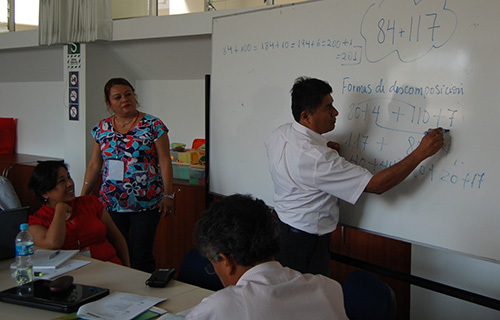
Tell me about your recent workshop in Lima. What are the goals?
The overall aim of the workshop has been to help Peruvian education experts plan a professional development program for mentors (accompañantes pedagógicos) in Peruvian school districts to support Peruvian teachers. Professors from the University of Helsinki and the Catholic University of Peru are working together on this. In our first meeting, we have given special attention to the issues related to the training process of mentors and the indirect influence on school teachers. A special emphasis of the development program is on teaching and learning mathematics and science, as well as on cultural diversity.
What are some of the key strategies you shared related to science teaching and learning?
I was focused on professional development and, moreover, megfigyelés, classification and inquiry as teaching and learning methods in primary science. These methods were discussed from a learning and motivation point of view. I gave talks about curriculum and assessment. I emphasized in my presentations that teachers in Finland are academic professionals who are able to plan broadly, including developing a local curriculum and assessing their own teaching and students’ tanulás. Countries around the world have undertaken reforms to prepare children for the demands of life and skills needed in the 21st century. There is no single strategy that can solve all the problems we face in education. Következésképpen, a teacher should be able to make decisions on teaching strategies based on his/her group of students, research based knowledge on teaching, learning and motivation, and the local curriculum.

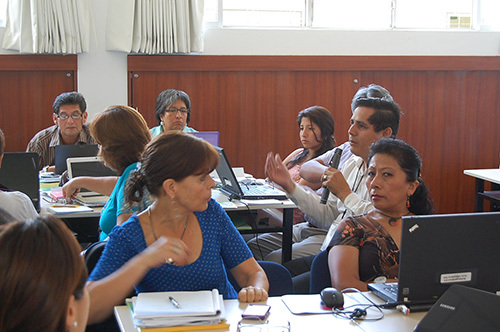
Általánosságban elmondható, what do you believe are the key competencies teachers need to effectively teach those skills?
Véleményem szerint, this question should be approached from the school and teaching situation point of view. The school should support the learning of 21st century skills. In a school, igazgatók, teachers and pupils need to be committed to work as developers, aiming to develop teaching, learning and collaboration at that school. Physical and technology environments as well as collaboration with families and society should be supportive for the development of those skills at school. The 21st century “mozgalom” refers to the redefining of the goals of education and how learning is organized in order to meet the demands of the 21st century. 21st century individuals need both critical and creative thinking and should be able to: use a wide range of tools, like socio-cultural (nyelv) and technological tools (education technology or ICT) for interacting effectively with the environment; engage and interact in a heterogeneous group; and take responsibility for managing their own lives and acting autonomously. Azonban, choosing the teaching/learning methods is not straightforward because students come from very diverse backgrounds. Ezért, fontos, hogy kihasználja a különböző tanítási módszerek, amelyek vegyenek részt a diákok kezelése témában tanulni kell oly módon, hogy azok létre értelmes és érthető tudásstruktúrák alapuló tanulási. Ez a fajta értelmes tanulás alapozna aktivitás és szándékát, reflexió és önértékelés, együttműködést és párbeszédet, építés, kontextualizálás, and cumulative learning.
How do you guide teachers’ és az iskolák’ use of technology as an effective teaching tool?
The Finnish Ministry of Education has published national-level strategies for education and use of technology in education, and the National Board of Education has designed a national framework curriculum for the school level for supporting the planning of local curriculum and use of technology in education. Education units (például. iskolákban és az egyetemeken) create their own strategies and programs based on the national strategy. This type of strategy-based approach has been applied in curriculum work and in the implementation of the use of technology in school education. There have been three official national strategies and several national development projects in the use of technology in education during the last 25 év. Strategic planning and implementation in the Finnish context has been based on the idea of autonomous decision making at the school level. Universities and further education institutes have organized training focused on the use of technology in education. Azonban, many politicians and researchers are not satisfied with the current situation. It is still a challenge to encourage teachers to adopt the use of technology as part of their teaching and for them to appreciate the usefulness of technology in the science classroom. There is currently a lot of discussion in Finland on the use of technology in the education and preparation of teachers.

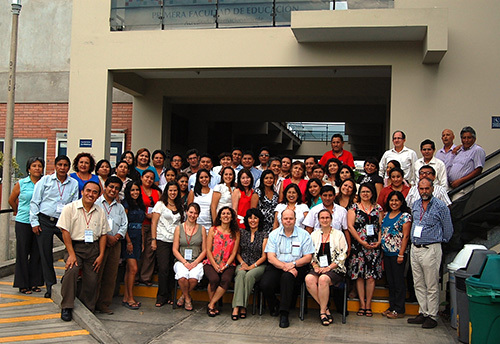
Do you see the role of the Finnish teachers changing as online learning evolves?
In many schools, there are good facilities and teachers are competent using technology, flexible learning approaches or distance learning. There is a lot of research in this area. Azonban, there is also variation in competencies of teachers and facilities. Ezért, an integrated approach to develop technology use in education is needed, meaning not only investment in technology infrastructure, like mobile devices, platforms, social media and cloud-services, but also short and long-term in-service-training for teachers, supporting the pedagogical use of technology infrastructure in the classroom. The politicians are perhaps too optimistic about the use of technology. Véleményem szerint, it is more important to internalize the ideas of meaningful learning and motivational aspects of learning. Meaningful learning is grounded on activity and intention, reflexió és önértékelés, együttműködést és párbeszédet, építés, kontextualizálás, and cumulative learning. Central to motivation are basic psychological needs: the need for autonomy, the need for competencies, and the need for relatedness (need to belong to a group). In addition to learning and motivation, several other pedagogical views are important, like integration and inclusion of personalized learning. És természetesen, the versatile use of technology could support student learning and motivation. Finnish schools are good at networking with families and other parties in society. We have had research projects where we have recognized that different kinds of networking foster the integration of technology into education, such as co-operation among schools; among teachers, developers and researchers; and among schools and their environment or working life. Networking is needed at all levels: inside school, between schools, and moreover, at national and international levels.
For more information on the Oppi Festival: http://oppifestival.com/

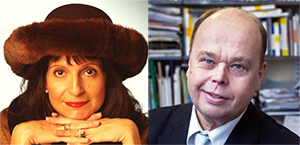
All photos are courtesy of Jari Lavonen.
A globális keresési Oktatási, velem és világszerte elismert szellemi vezetők többek között Sir Michael Barber (UK), DR. Michael blokk (Az US), DR. Leon Botstein (Az US), Professzor Clay Christensen (Az US), DR. Linda Darling-Hammond (Az US), DR. Madhav Chavan (India), Professzor Michael Fullan (Kanada), Professzor Howard Gardner (Az US), Professzor Andy Hargreaves (Az US), Professzor Yvonne Hellman (Hollandiában), Professzor Kristin Helstad (Norvégia), Jean Hendrickson (Az US), Professzor Rose Hipkins (Új-Zéland), Professzor Cornelia Hoogland (Kanada), Tisztelt Jeff Johnson (Kanada), Mrs. Chantal Kaufmann (Belgium), DR. Eija Kauppinen (Finnország), Államtitkár Tapio Kosunen (Finnország), Professzor Dominique Lafontaine (Belgium), Professor Hugh Lauder (UK), Professor Ben Levin (Kanada), Lord Ken Macdonald (UK), Professzor Barry McGaw (Ausztrália), Shiv Nadar (India), Professzor R. Natarajan (India), DR. PAK NG (Szingapúr), DR. Denise Pope (US), Sridhar Rajagopalan (India), DR. Diane Ravitch (Az US), Richard Wilson Riley (Az US), Sir Ken Robinson (UK), Professzor Pasi Sahlberg (Finnország), Professzor Manabu Sato (Japán), Andreas Schleicher (PISA, OECD), DR. Anthony Seldon (UK), DR. David Shaffer (Az US), DR. Kirsten Magával ragadó Are (Norvégia), Chancellor Stephen Spahn (Az US), Yves Theze (Lycee Francais-beli), Professor Charles Ungerleider (Kanada), Professzor Tony Wagner (Az US), Sir David Watson (UK), Professzor Dylan Wiliam (UK), DR. Mark Wormald (UK), Professzor Theo Wubbels (Hollandiában), Professzor Michael Young (UK), és professzor Minxuan Zhang (Kína) mivel azok feltárása a nagy kép oktatási kérdés, hogy minden nemzet ma szembesül. A Global Search Oktatási közösségi oldal
C. M. Rubin a szerző két legolvasottabb internetes sorozat, amely megkapta a 2011 Upton Sinclair díjat, “A Global Search for Education” és “Hogyan fogjuk olvasása?” Ő a szerzője a három bestseller könyv, Beleértve The Real Alice Csodaországban, és a kiadója CMRubinWorld.
Kövesse C. M. Rubin on Twitter: www.twitter.com/@cmrubinworld


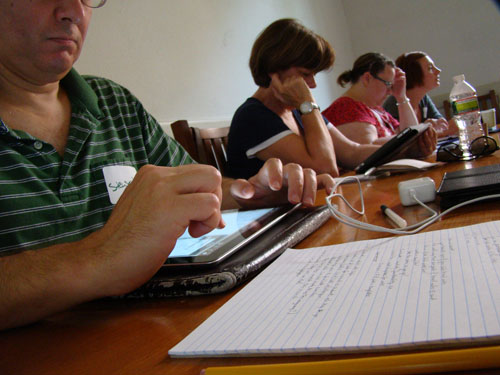
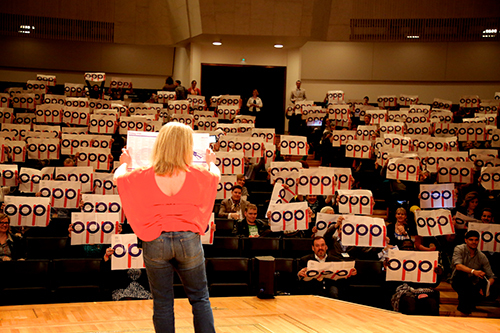

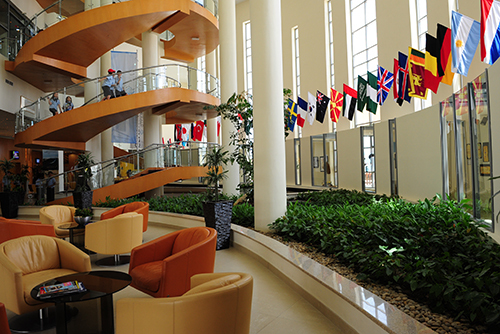
Legutóbbi hozzászólások